Healthcare Cybersecurity Services in Singapore
Let’s be real. People are yet to forget the SingHealth breach that happened in 2018. When a city with a strong control system and the best infrastructure is capable of losing 1.5 million patient records, what does it mean about the rest of us? Healthcare in Singapore is racing into the digital fast lane with EMRs, telehealth, IoT medical devices, and national platforms like NEHR. But the faster we go, the sharper the turns, and that’s where Healthcare Cybersecurity Services in Singapore step in.
Why Healthcare Cybersecurity Is Mission-Critical
Hospitals and clinics aren’t just healing spaces anymore; they’re data goldmines. And hackers know it. Healthcare has been one of Singapore’s most-targeted sectors for years, and the fallout is brutal. Fines, reputational scars, and most importantly, a loss of patient trust. The SingHealth attack wasn’t just about stolen data; it reshaped how the country approaches digital safety. Regulations like PDPA, the upcoming Health Information Bill (HIB), and MOH/CSA guidelines now demand airtight security measures.
And let’s not forget connected devices. Pacemakers, infusion pumps, and diagnostic machines are all wonderful for patients, but each one is a potential door left ajar. That’s a lot of risk to juggle.
Core Cybersecurity Services Healthcare Providers Need
So, what’s non-negotiable here?
1. CISO-as-a-Service (CISOaaS) & Cyber Health Plans
You don’t need a full-time CISO sitting in your office, but you do need their expertise. Under CSA’s CISOaaS scheme, clinics can tap into Cyber Essentials audits, policy drafting, staff training, and governance without the giant overhead.
2. Vulnerability Assessment & Penetration Testing (VA/PT)
Imagine that you are stress-testing your systems before the other person does. From EMRs to network infrastructure and medical devices, VA/PT scans reveal cracks before they widen into breaches.
3. Incident Response (IR) & Forensics Support
When the alarm bells ring, time isn’t on your side. CSA-backed IR services help contain damage, investigate root causes, and keep you compliant. Yes, that includes the HIB’s strict “report within 2 hours” rule.
4. Endpoint Protection & Network Monitoring
We’re talking EDR, NDR, firewalls, and segmentation. Every endpoint, from IoT devices to laptops, gets locked down. Integration with SingCERT ensures you’re plugged into national threat alerts too.
5. Secure Remote Access & Mobile Device Security
Telehealth isn’t going away, which means staff accessing records from home, coffee shops, and even airports. VPNs, zero-trust access, and mobile device management (MDM) keep that flexibility from turning into a liability.
6. Data Encryption, Backup & Off-Site Recovery
Encryption isn’t just best practice, it’s survival. Backups need to be tested, off-site, and ready for rapid recovery. PDPA and NEHR standards make this more than optional.
The Compliance Backbone
Singapore’s regulatory frameworks aren’t just red tape; they’re roadmaps.
PDPA ensures personal data is protected.
MOH Cybersecurity Guidelines spell out patching, access control, and detection.
HIB raises the stakes with tight reporting deadlines.
Cyber Essentials/Trust Mark gives clinics a badge of assurance and credibility.
Hard Lessons from SingHealth
Attackers slipped in through unpatched systems and weak credential practices. The clean-up? Costly. The fixes? Mandatory 2FA, network isolation, proactive monitoring, and relentless patching. Preventing is always less expensive than reacting, which should be what is removed in case of clinics.
How to Get Started (Without Getting Overwhelmed)
Start small but start smart.
Run a Cyber Health Assessment with a CSA-approved provider.
Schedule VA/PT scans across your systems.
Deploy endpoint defenses like firewalls and segmentation.
Tighten remote access controls with MFA and MDM.
Draft incident playbooks so you’re not scrambling in chaos.
Train your staff. Phishing drills aren’t glamorous, but they work.
Aim for Cyber Essentials/Trust Mark to show patients, insurers, and regulators you mean business.
What It Costs and What’s Covered
The investment isn’t pocket change, but it’s manageable with support:
Cyber Health Check + VA/PT: SGD 5,000–10,000
EDR, Firewalls, NAC: SGD 100–200 per device, per year
CISOaaS Retainer: SGD 3,000+ monthly
IR Services & Recovery Drills: SGD 2,000–5,000 annually
IMDA PSG funding: covers up to 50% for eligible cybersecurity solutions
Why Clinics Should Act Now
Every day you wait is another day of risk. Breaches don’t just bring fines; they bring downtime, lawsuits, and patients quietly taking their trust elsewhere. Clinics that align with Cyber Essentials not only meet NEHR access requirements but also show insurers, MOH, and patients that they take security seriously.
Take the First Step
If your clinic hasn’t reviewed its cybersecurity posture recently, now’s the time. Start with a CISOaaS review, follow through with penetration testing, roll out endpoint protection, and prepare for the inevitable with incident response planning. From funding applications to compliance guidance, Healthcare Cybersecurity Services in Singapore exist to make the process less daunting and a lot more secure.
👉 Book a Free Healthcare Cyber Readiness Consultation
Related Reads
IT Infrastructure Setup for Dental Clinics in Singapore (Read now)
Top IT Challenges Faced by Small Healthcare Centers and How to Overcome Them (Read now)
Optimizing IT for Multi-Site Medical Groups: A Comprehensive Guide (Read now)
Identifying Common Risks in Healthcare Cybersecurity (Read now)
Ensuring HIPAA Compliance: A Guide for Small Healthcare Providers (Read now)



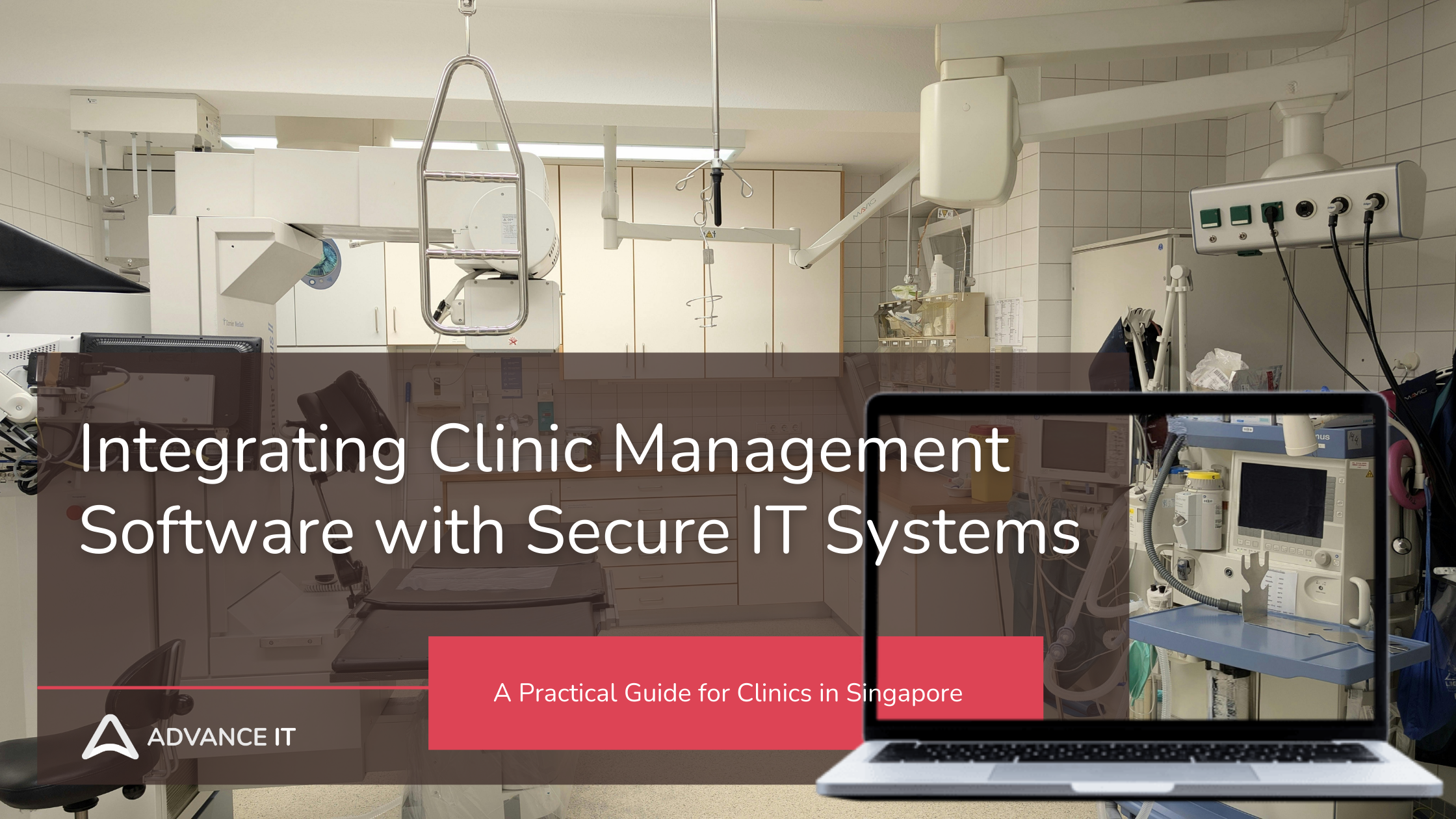
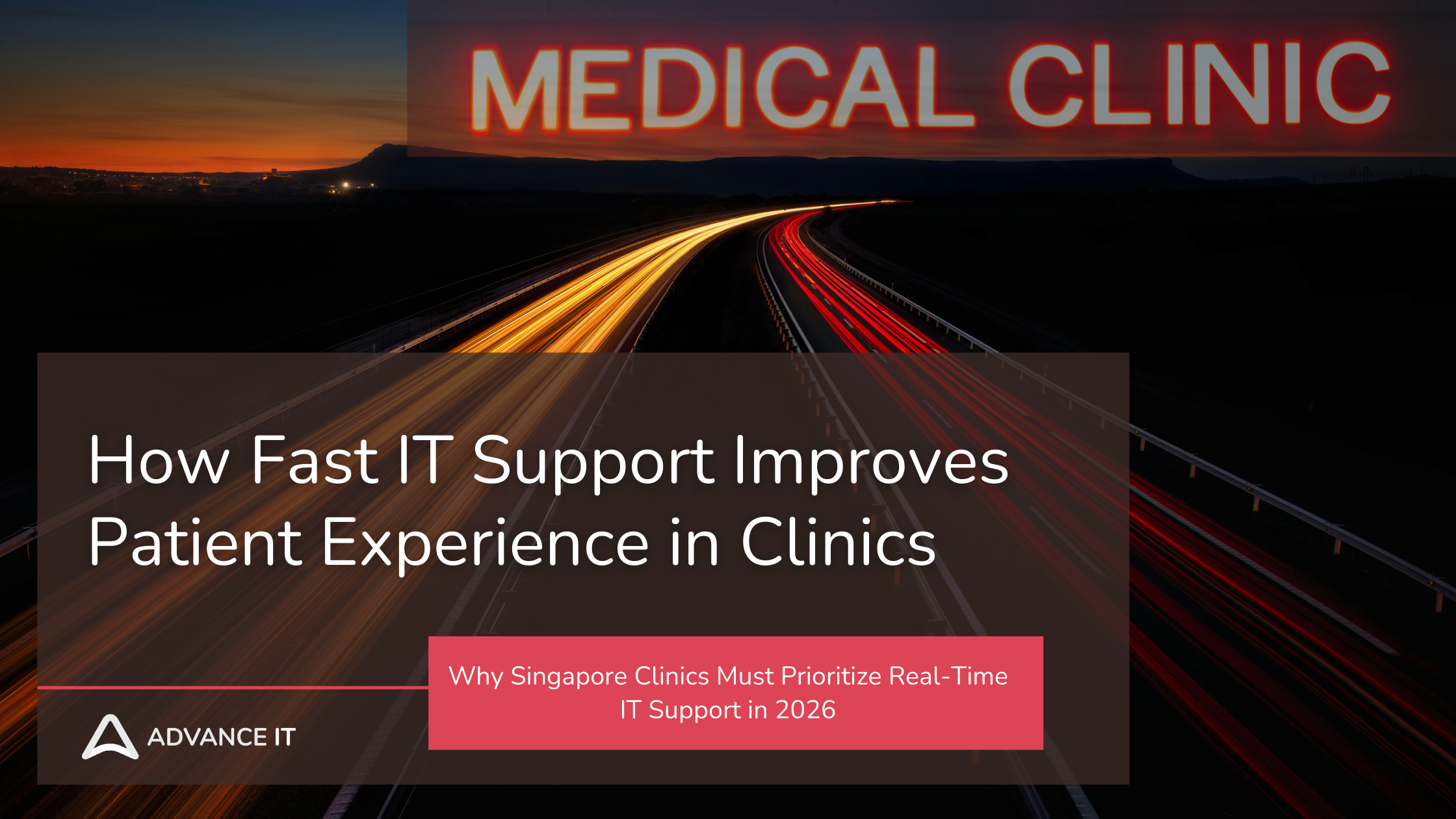
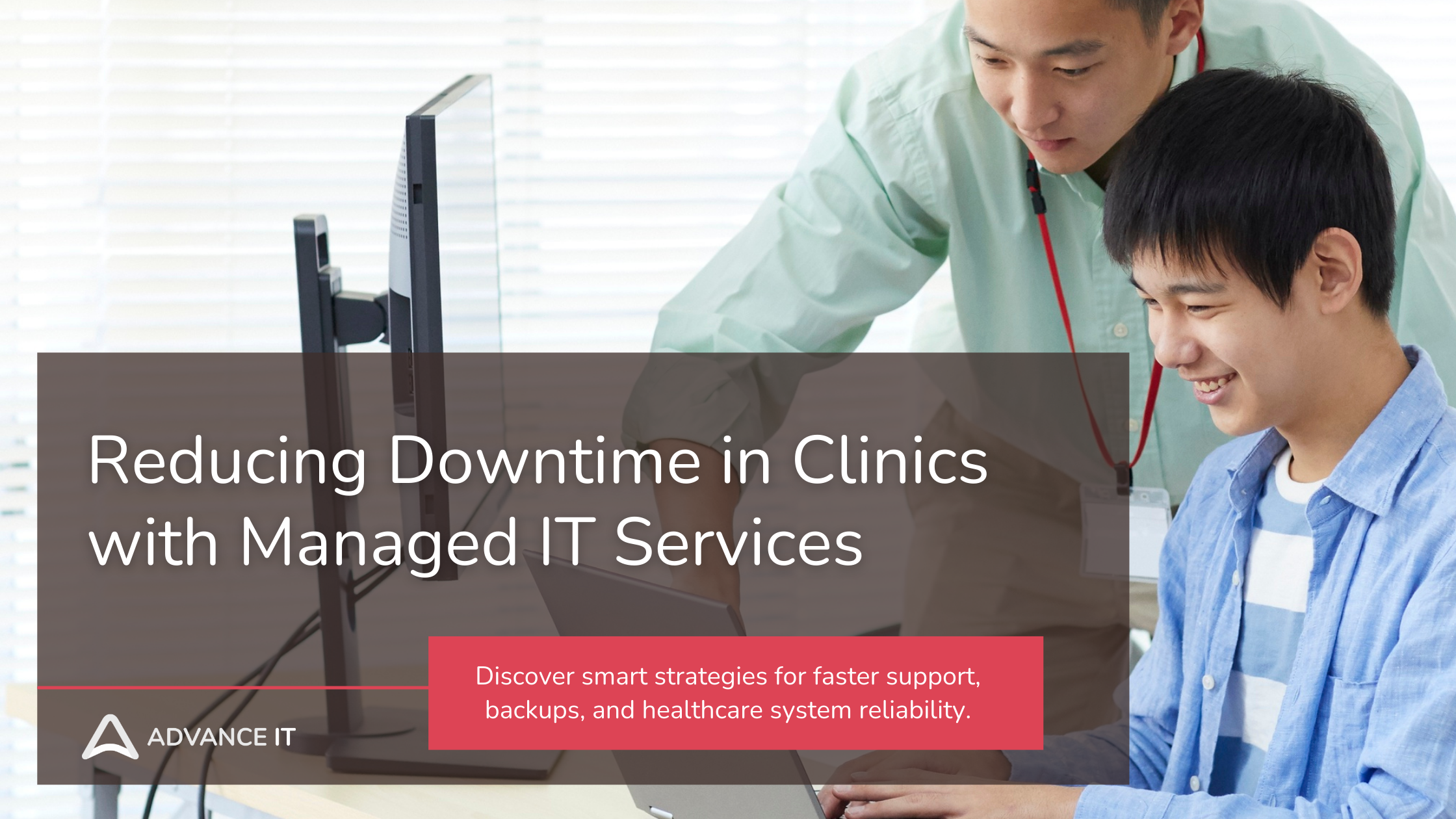
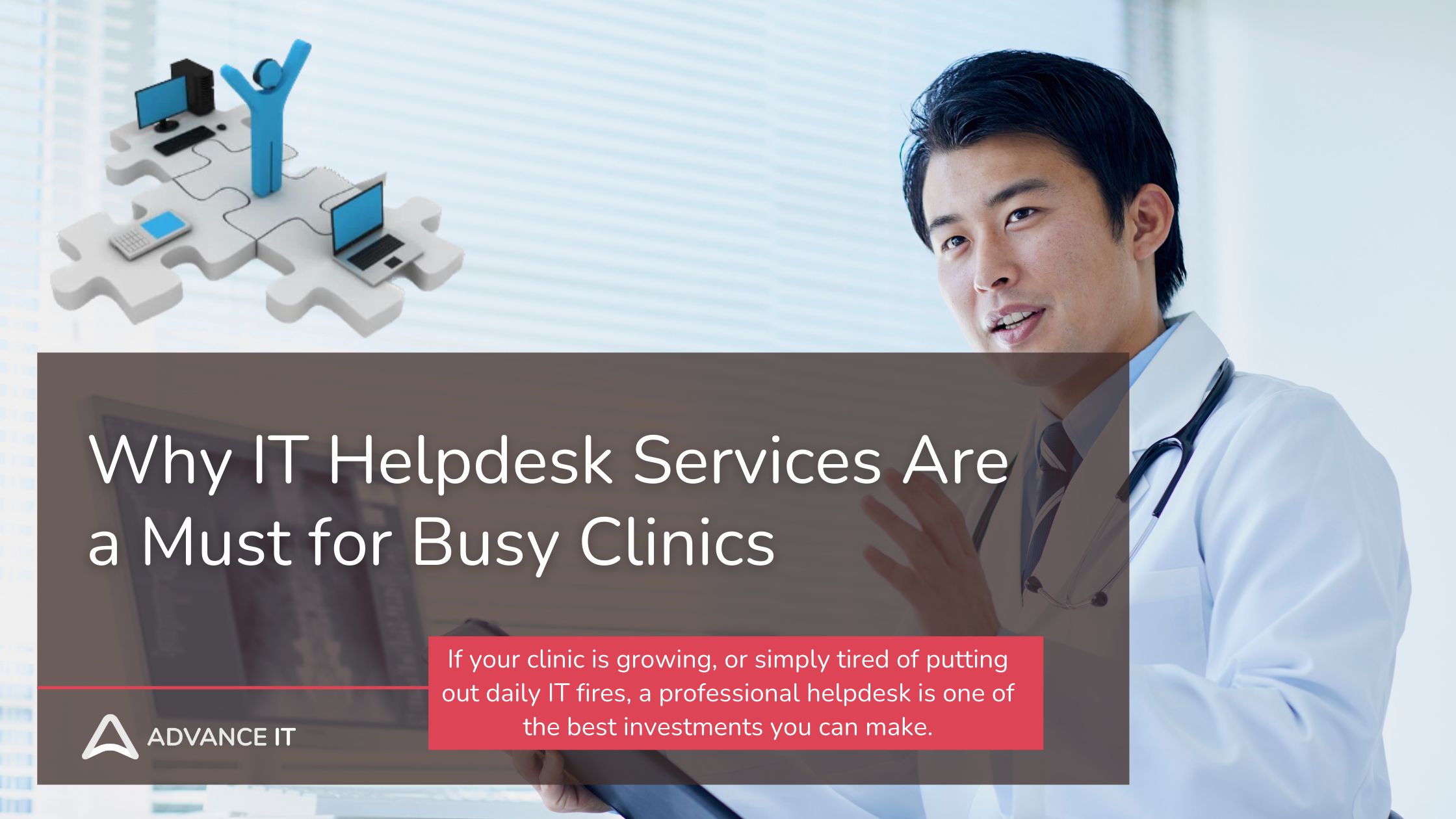
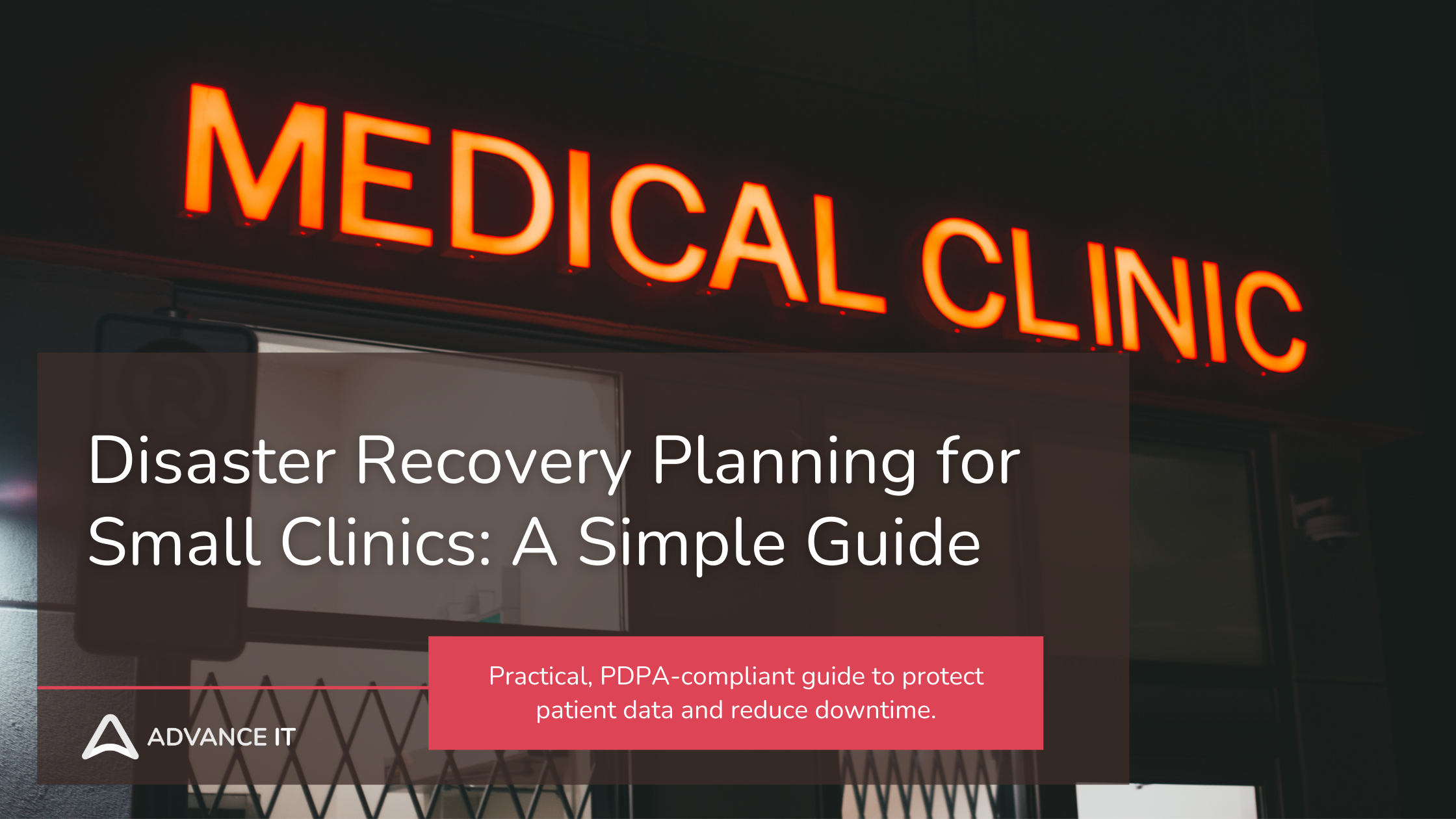
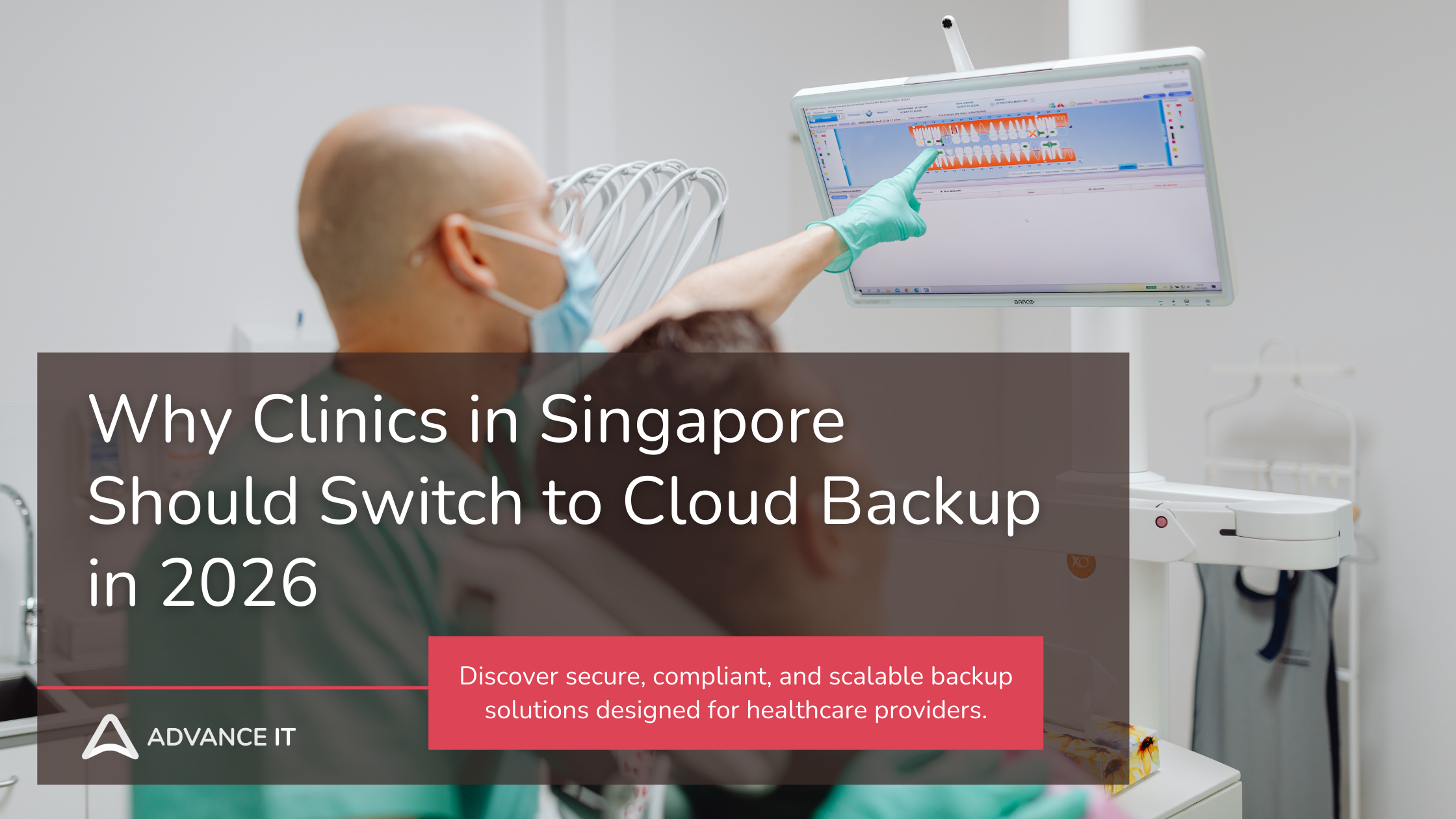
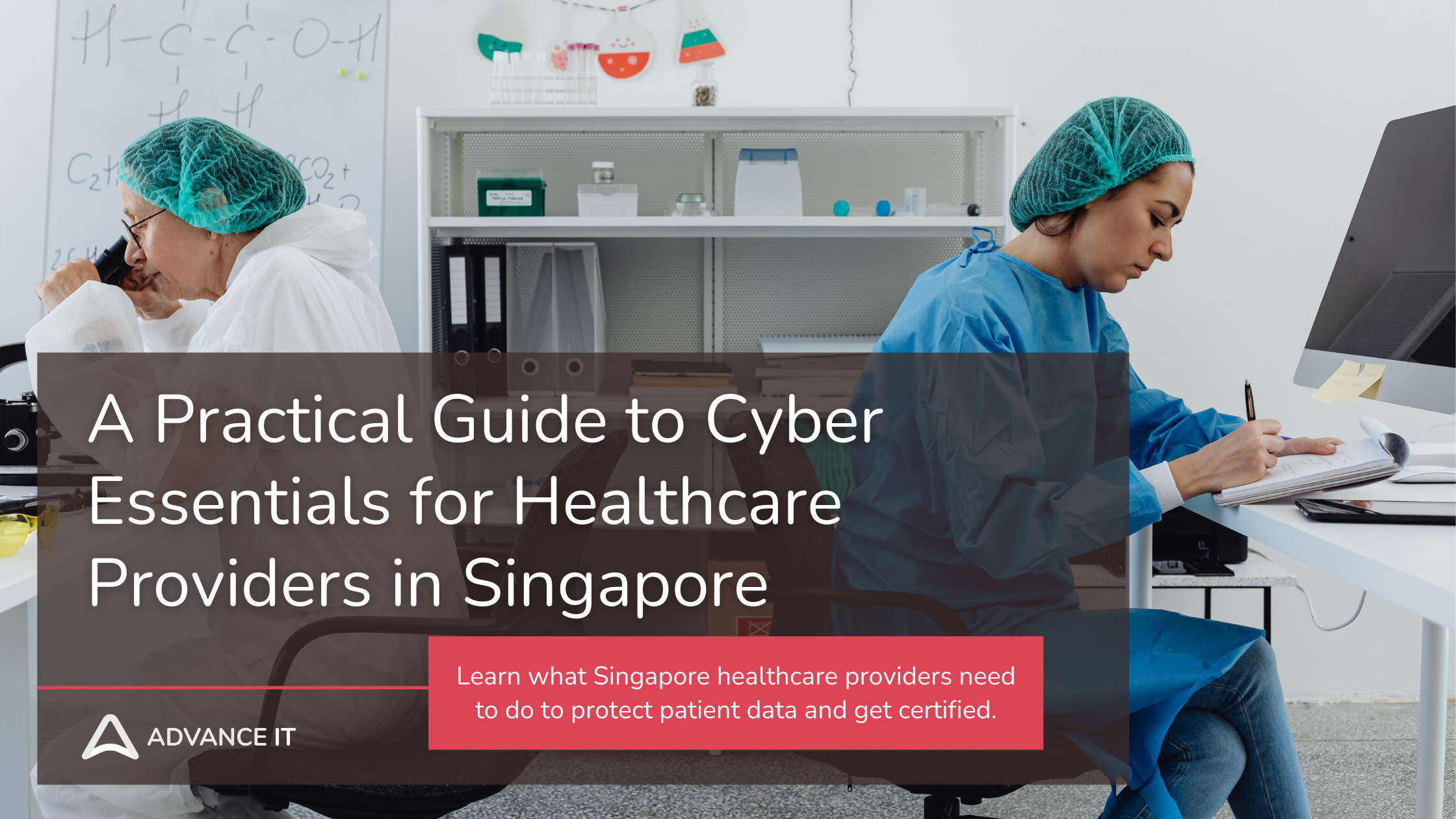
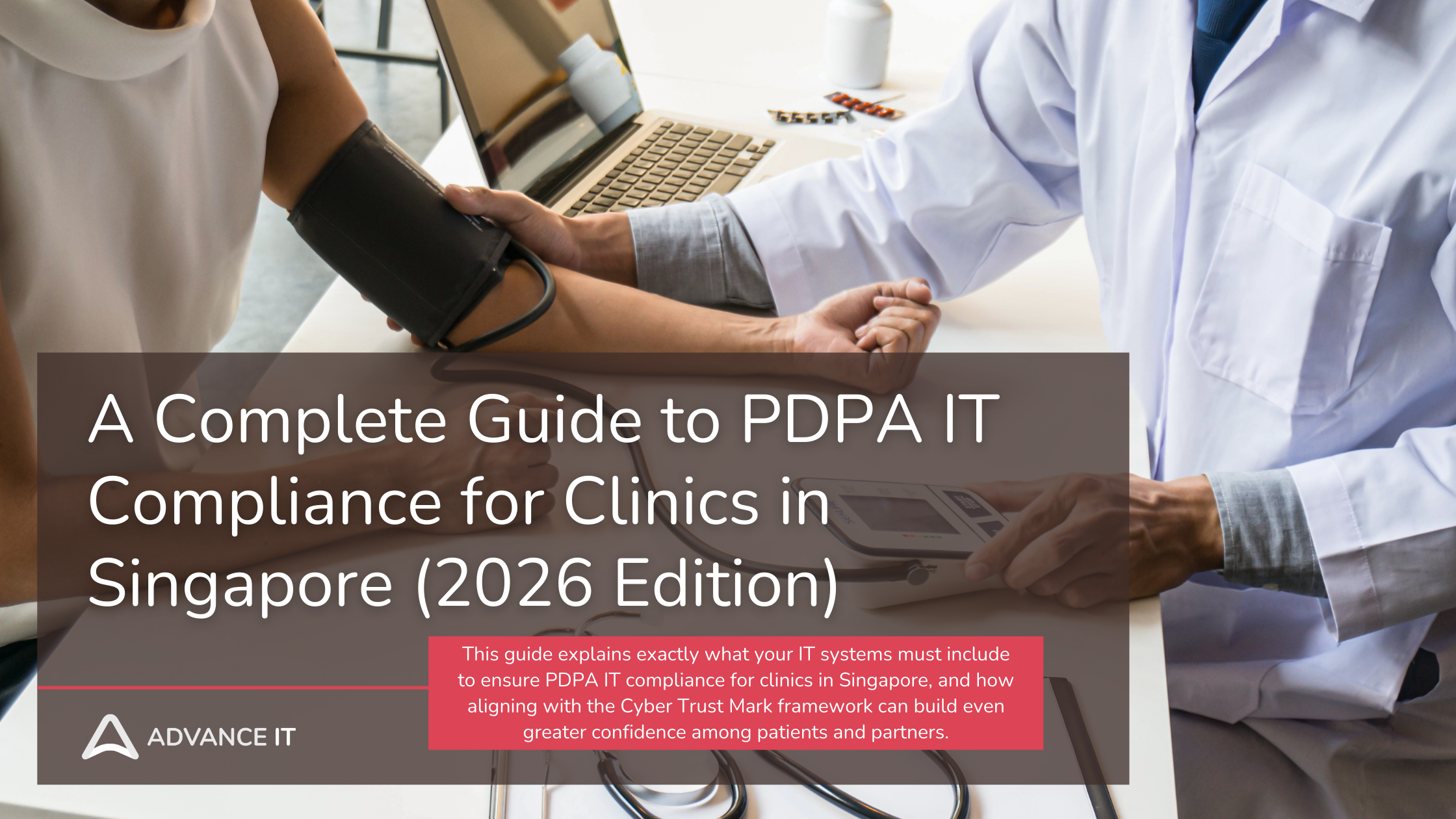
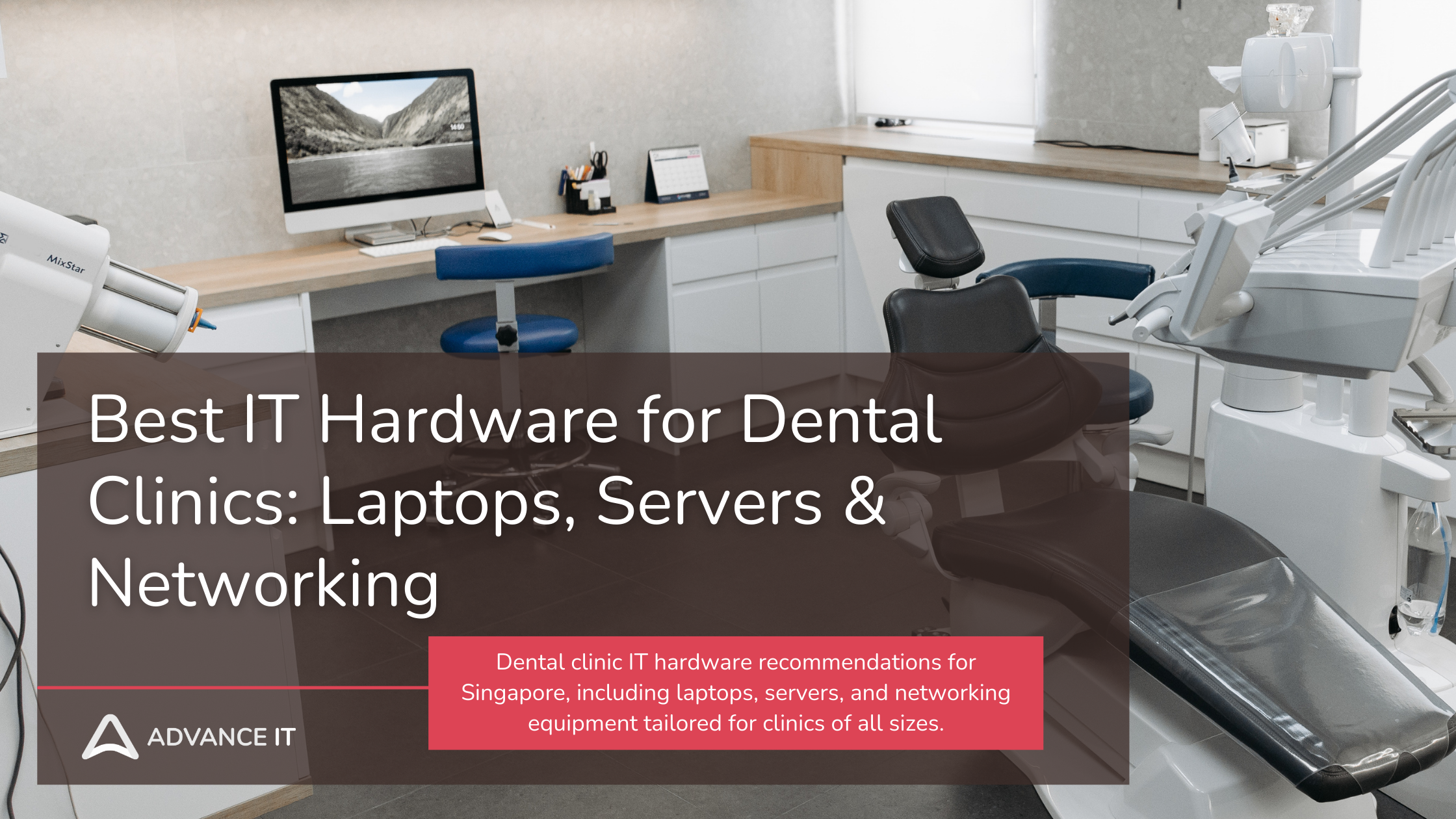
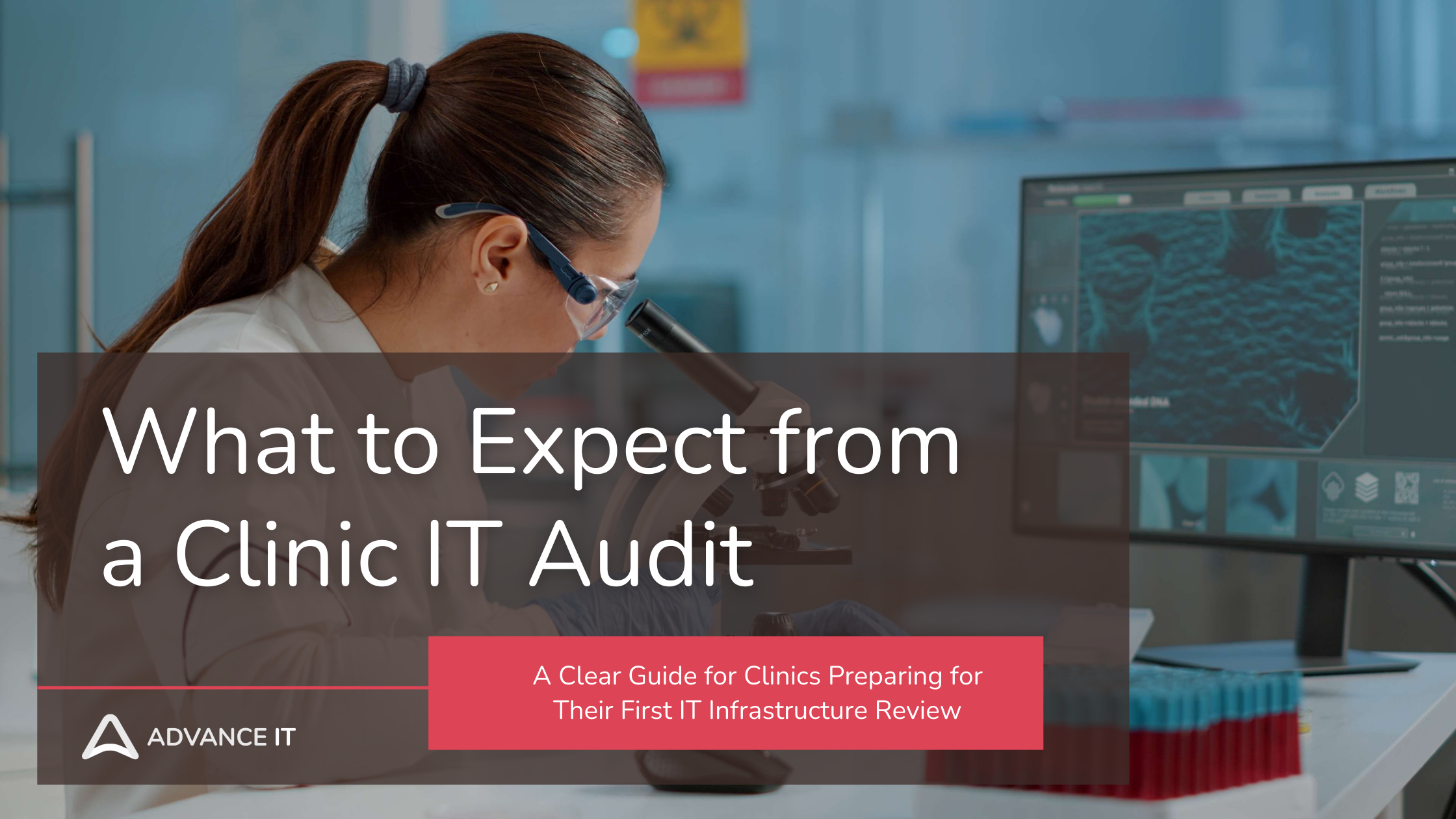
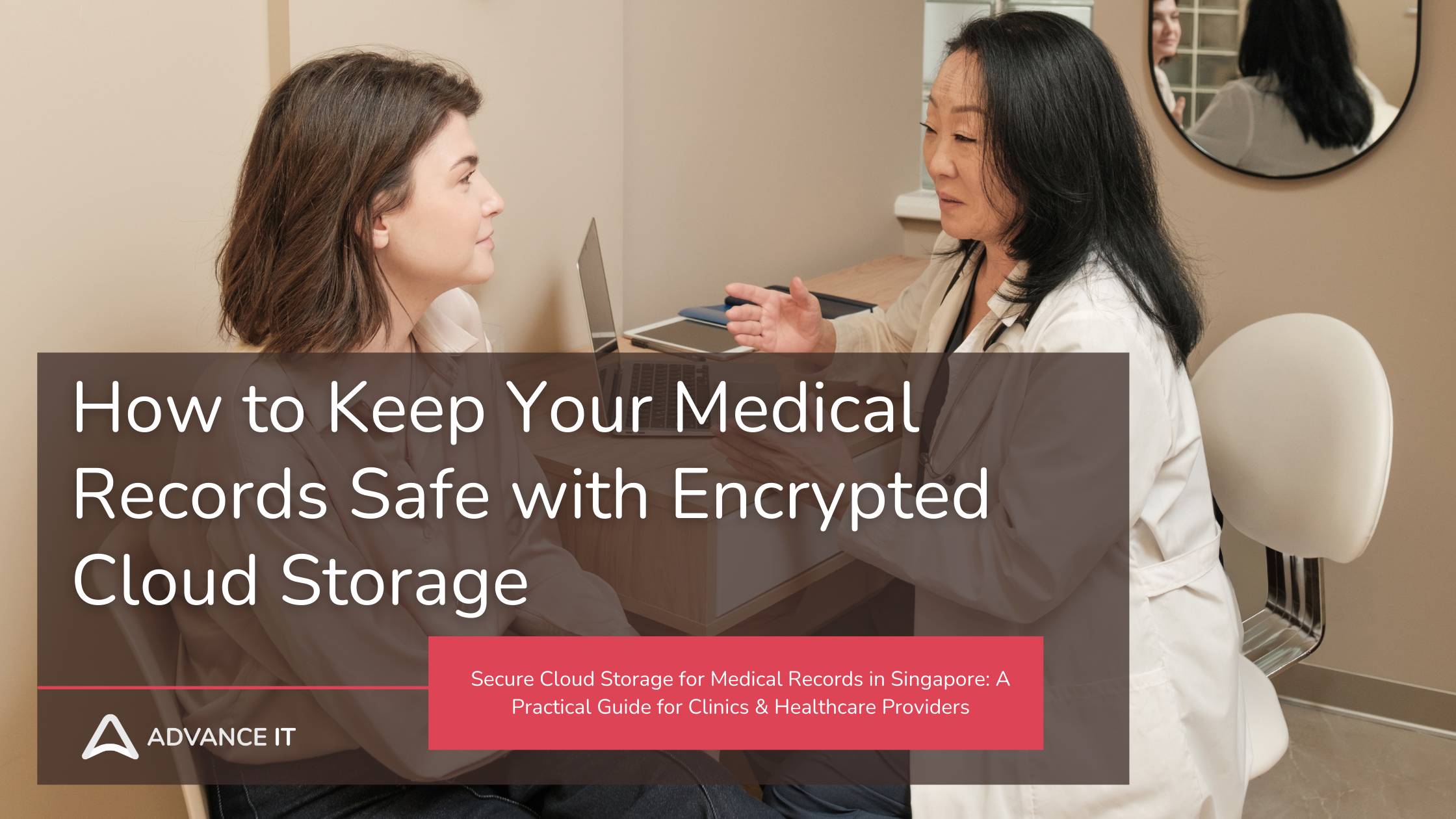


Opening a second clinic in Singapore? Discover key IT considerations for multi-location clinics. Learn how to scale securely with Advance IT’s expert support.